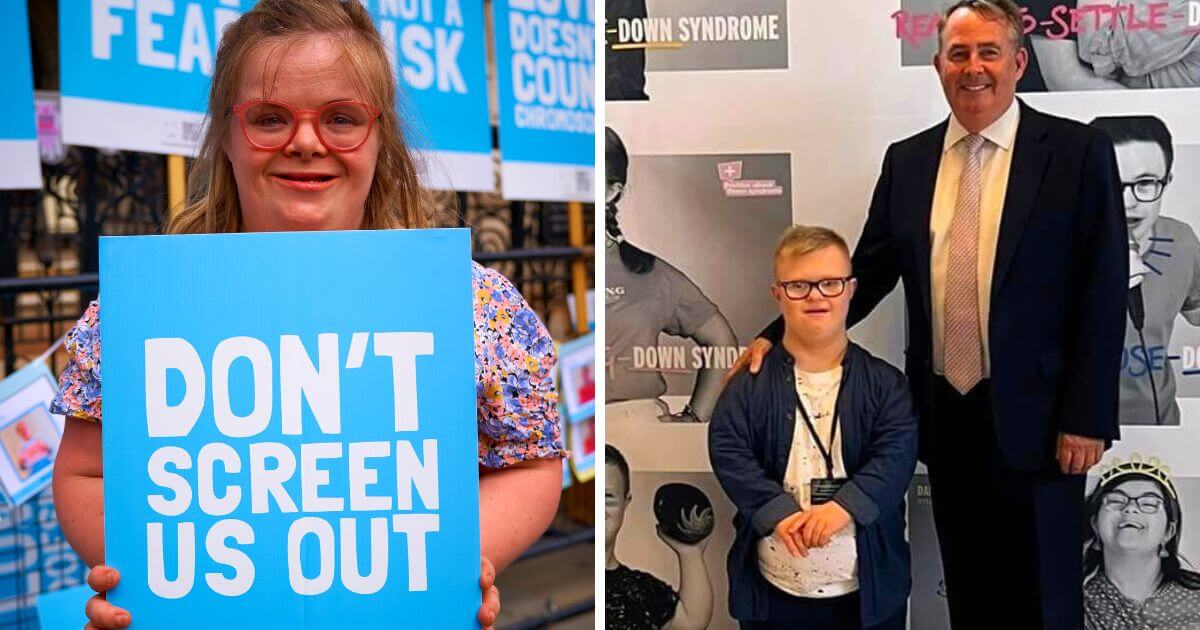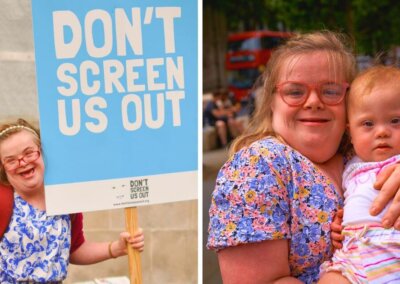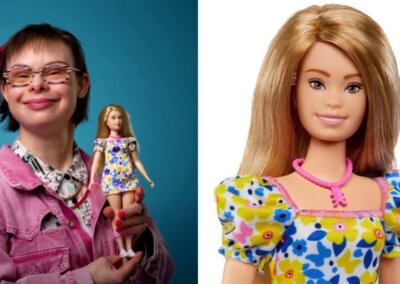A debate was held in Parliament today to mark World Down Syndrome Day.
The debate was opened by Dr Liam Fox who previously said that abortion laws in the UK are “far too liberal” and that abortion up to birth for babies with Down’s syndrome is “absolutely horrendous”.
During the debate, Dr Fox quoted ‘valiant campaigner’ Heidi Crowter, who has been fighting against the UK’s current discriminatory abortion law that permits abortion up to birth for babies with Down’s syndrome and other disabilities.
“I have shown everyone that Down’s syndrome is not something to be scared of and that people with Down’s syndrome live happy, amazing, fulfilled and independent lives.”
“We are not going to give up. I think that all human life is valuable and should be treated with respect however many chromosomes we have.”
Dr Fox ended his speech by saying “I don’t believe there is a single one of us in this house who cannot agree with that sentiment” in reference to Heidi’s words.
To mark the World Down Syndrome Day celebrations, Maria Caulfield MP, the Parliamentary Under-Secretary of State for Mental Health and Women’s Health Strategy, wore socks that showcased the three strands of chromosome 21 that individuals with Down’s syndrome have, rather than a pair.
Discriminatory abortion law challenged
Heidi Crowter, a 27-year-old woman from Coventry who has Down’s syndrome, had challenged the UK Government over a disability clause in the current law that allows abortion up to birth in those cases where it is thought the baby is disabled.
Together with Máire Lea-Wilson, the mother of Aidan, a young boy who has Down’s syndrome, Heidi argued that the abortion law was incompatible with the European Convention on Human Rights.
Sadly, however, the Court of Appeal released its judgement that the UK abortion law was not discriminatory against people with disabilities and people with Down’s syndrome in particular.
Shortly after the decision was announced, Heidi told a rally outside the Court “This law was made in 1967 when we were not even allowed to go to school because of our extra chromosome, so I think it’s time that the judges move with the times and actually meet people with Down’s syndrome and see the people behind the chromosome.”
Along with her legal team, Heidi is now considering seeking permission for the case to be taken on to the Supreme Court.
Abortion up to birth if the baby has Down’s syndrome
Currently in England, Wales and Scotland, there is a general 24-week time limit for abortion, but if the baby has a disability, including Down’s syndrome, cleft lip and club foot, abortion is legal right up to birth.
There were 3,370 disability-selective abortions in 2021. The number of late-term abortions at 24 weeks gestation or over where the baby has a disability increased by 20% from 229 to 274.
The statistics showed there were 859 abortions where a baby had Down’s syndrome in 2021, an increase of 24% from 2020. The statistics also show a 71% increase in late-term abortions at 24 weeks gestation or over where the baby had Down’s syndrome, increasing from 14 in 2020 to 24 in 2021.
Right To Life UK spokesperson Catherine Robinson said “It is great to see MPs drawing greater awareness to the lives of individuals with Down’s syndrome. It is a matter of great sadness that there are so many abortions in cases where a baby is diagnosed in the womb to have Down’s syndrome or another disability. Such antiquated discrimination has no place in modern society.”












